Skilled Immigrant Task Force - Workforce Development & Adult Learning - Success Stories
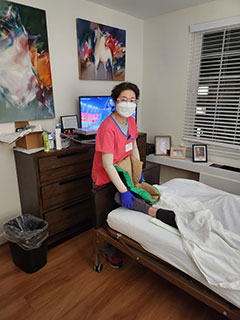
Mee Soo Kim felt as if her American Dreams were Coming True
In 2018, Mee Soo Kim immigrated to the US from South Korea with her two children. Like many others, Mee Soo arrived with limited resources, few personal belongings, and the hope of a brighter future for her family. Being the primary caregiver of two small children – one who has a significant disability – did not allow her to pursue a career immediately. Although Mee Soo had a college education, the language barrier posed as an obstacle for her to find jobs commensurate with her level of education. Because of this, Mee Soo worked odd jobs to help her family make ends meet.
Mee Soo has always had an interest in caregiving, but due to language and childcare barriers, she had to wait to pursue a career in this field. Once her children were of school age, Mee Soo was able to connect in January 2022 with Mitra Basu at the Howard County Office of Workforce Development and receive services, such as skills development, and obtain a voucher to take a certification course to pursue a career in healthcare. Mee Soo chose to pursue the Certified Nursing Assistant program at Howard Community College and earned her certification as verified by the Maryland Board of Nursing.
Having earned this credential, Mee Soo expressed that she felt as though she finally made it; her American Dreams were coming true. Not long after she completed her certification, she obtained employment in July 2022 with the Lorien Rehab and Nursing Center in Columbia. As a motivated, ambitious, and driven individual, she earned an award at the Lorien Center as the "Employee of the Month."
In 2023, Mee Soo is taking additional training as an Advanced Patient Care Technician. This training will enable her to compete in the labor market and earn a better living for herself and her two children.
We are extremely proud of Mee Soo and all that she has accomplished.
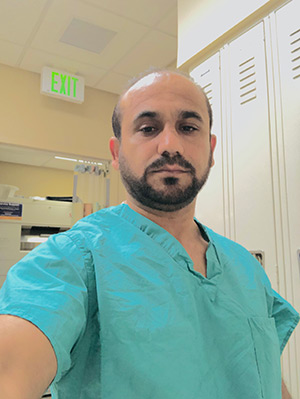
Yama Takes the Next Step in His Adventurous International Career
To say Yama, who immigrated to the U.S. from Afghanistan with his family in 2010, is a highly-skilled professional may be an understatement. Yama earned a medical degree from Kabul Medical University and subsequently served as a general surgeon for the Afghan Government's health department and the Camp Phoenix Hospital operated by the American army. In addition to his healthcare career, Yama held Associate Professor roles teaching language and cryptology for a variety of U.S. federal agencies. Despite his extensive formal training and diverse professional background, Yama found himself without a job in 2020 when funding for the programs he supported was eliminated.
Fortunately, Yama found Workforce Specialist Mitra Basu at the Columbia American Job Center (AJC).
Yama shared with Mitra that he wanted to return to his medical career, but he could not afford the prohibitive costs involved. After working with Mitra to consider his options, Yama decided to leverage his medical training to become a surgical technician. Mitra helped Yama secure funding to cover the cost of Surgical Technologist training as well as the American Board of Surgical Associate certification exam. Yama completed the training and passed the exam with flying colors.
Today, Yama is finding that his skills are in high demand. The internationally renowned Johns Hopkins Hospital has offered him a job as an Assistant to the Surgeon for Urology, and Howard Community College is recruiting him to work as an Adjunct Faculty Professor of Surgery. With Yama’s determination and support from the Workforce Innovation and Opportunity Act, he is launching the next exciting chapter in an adventurous career path!
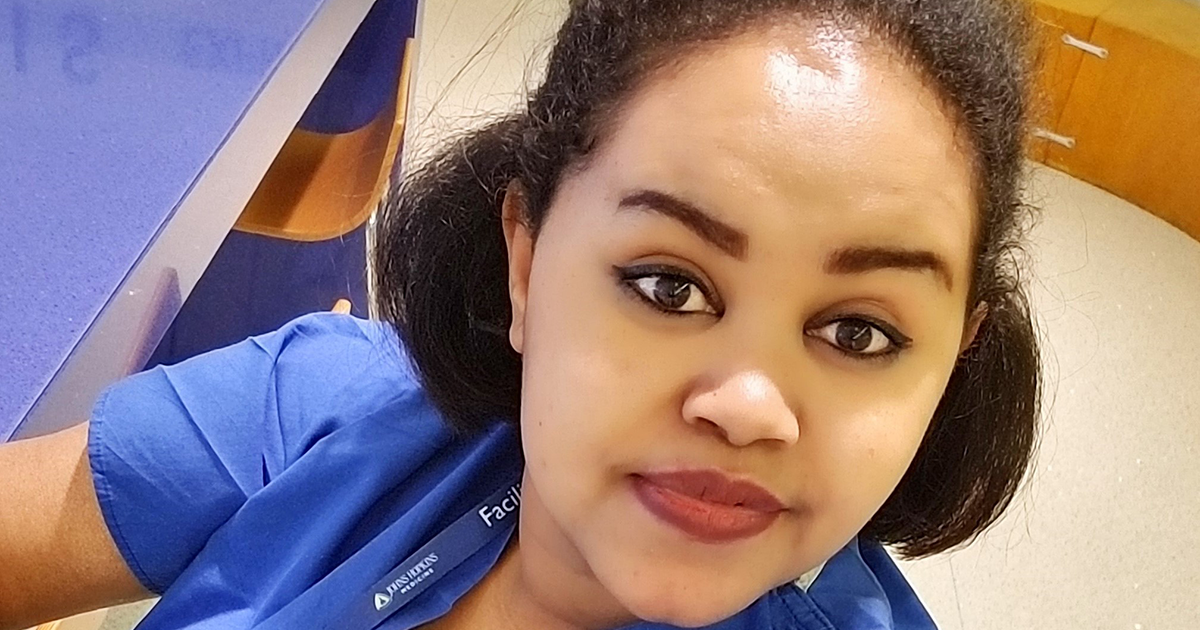
Helen gets the career help she needs through the Baltimore Alliance for Careers in Healthcare
Helen came to the United States from Eritrea in 2017 with her three young boys, reuniting with her husband, Daniel, who had arrived in 2014. Helen and Daniel were the first from their family to immigrate to the United States and had no other family in the country. Helen received her diploma in accounting in her home country of Eritrea in 2015. She worked as a customer services representative while there for almost nine years and supervised others as well as provided on-the-job training.
Once she came to the United States, Helen worked as a cashier at a local Baltimore City gas station, where she improved her English communication skills and became more accustomed with the U.S. culture through daily interactions with customers.
Through the Caroline Center, Helen obtained her CNA/GNA license and received dementia training, along with CPR and first aid. This allowed her to work part-time as a nursing assistant at the 2nd Family Home Health Care Service, where she maintained patient care records, monitored their conditions, reported on their progress, and related all information to the patients’ family and her supervisor.
In early 2019, Helen connected with Baltimore Alliance for Careers in Healthcare (BACH), who sponsor several healthcare apprenticeship programs. Helen successfully completed a career readiness class teaching skill in résumé building, cover letter writing, and interview techniques. Soon after, she interviewed and was accepted by Johns Hopkins Hospital to participate in the Environmental Care Supervisor apprenticeship sponsored by BACH. A little over one year later, Helen successfully completed the program and transitioned to full-time permanent supervisor role.
Helen gained many lessons from the apprenticeship, which she states helped shape her professional development, improve her job performance, and equip her with the skills needed to be a successful supervisor. Helen earns over $11 more per hour in her new role than she was earning in her previous position before starting the apprenticeship. She is also now working full time and receives critical benefits such as healthcare. The increase of Helen’s wage has benefitted her daily expenses and has allowed her to make long-term plans such as buying a house and improving her livelihood.
Helen is proud to be an employee of Johns Hopkins, a well-known hospital, where she hopes to continue to increase her skills and education. She has truly enjoyed the experience of being in a healthcare apprenticeship, as it has also allowed her to understand better the American workforce culture. Helen states that one day she would like to return to school to earn a degree in Nursing or Health IT, while continuing to build upon her career at Johns Hopkins.
With the help of the registered apprenticeship program, Bechak advances his career
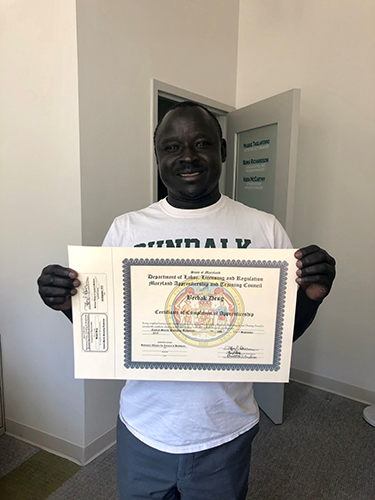
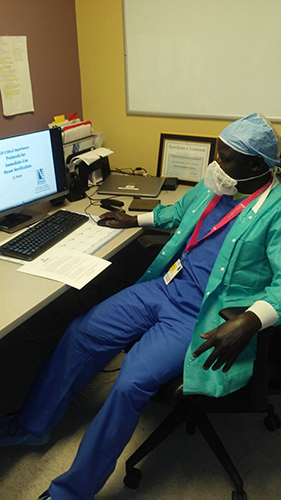
Bechak Deng, was born in Ethiopia and worked for over 7 years as a social worker in his country. After being forced to leave his home based upon social-political conflict, he immigrated to Baltimore with his family in 2016. With the help of the International Rescue Committee in Baltimore his family was resettled and found stability through entry level employment in warehouse and hospitality positions.
Earlier this year, the IRC referred Bechak to BACH’s apprenticeship program to assist in advancing his career. He has recently graduated the apprenticeship program and now works full time at University of Maryland Medical Center as a Central Sterile Processing Technician. Bechak has also received his certification as a Registered Central Service Technician, recognized by the International Association of Healthcare Central Service Material Management. He states, “Working at the University of Maryland Medical System as a Central Sterile Processing Technician has been a great privilege and has opened doors for me in the healthcare field.”
Howard Community College Skilled Immigrant Program – A Road to Career Success for New Americans
Mary Barton is the English Language Center Enrollment, Transitions, and Outreach Coordinator at Howard Community College, and she knows a thing or two about the challenges New Americans - immigrants, refugees, asylees, temporary and long-term visitors from other countries – often face when trying to enter the U.S. workforce. Housing, dependent care, education, and employment are a few of the most common obstacles. The good news is that Mary and the team of dedicated staff with whom she works at the Skilled Immigrant Program at Howard Community College work hard every day to help these individuals build a brighter economic future, by connecting them with the supportive services and employment and training resources they need to overcome their challenges and achieve their career goals.
The focus of the Skilled Immigrant Program is to help participants navigate to the highest level job aligned with their knowledge, skills, and abilities. The program includes two courses. The first is a four week, 16-hour intensive course that covers essential topics, including an introduction to the United States job culture, career exploration and resume writing. The second is a six week, 30-hour course that features professional career counseling, tutoring in pronunciation, interview preparation, and mentorship from industry leaders.
Recalling the genesis of the Skilled Immigrant Program, Mary notes, “It began as a training program funded by the banking sector to prepare multilingual applicants. The program was so successful in meeting employer needs, other sectors in the business community jumped onboard. Over time, we’ve expanded beyond banking to serve internationally trained and experienced professionals in the business, science and technology, human services and education sectors.”
“Skilled Immigrant Program staff come from the standpoint of valuing the importance of a multilingual individual’s education, training, and experience,” Mary says, in explaining the program’s success. “For example, a participant may have been an engineer in their country of origin, but their lack of a U.S.-recognized credential may be a barrier to working under the formal job title of an engineer in this country. Instead of zeroing in on the barrier, we look at the opportunities for working with an engineer. We focus on identifying participants’ transferable skills, and working with them to map out unique training and employment paths that coordinate all of our resources and get them as close as possible to their full professional potential.”
Thanks to Mary and her team for making Maryland’s workforce stronger and more diverse!
Do you know someone who could benefit from the services the Skilled Immigrant Program at Howard Community College offers? The Program currently enrolls up to 15 participants per course cycle. Registrants need not be residents of Howard County, but they should be work-authorized and open to traveling to work in Central Maryland. Once enrolled in the program, participants will gain access to support services located at Howard Community College, such as the Career Services Center. To learn more about the Skilled Immigrant Program, please visit www.howardcc.edu/skilledimmigrant.
EARN Maryland Training Opportunity Supports Tesfaye's ReEntry into BioTech Industry
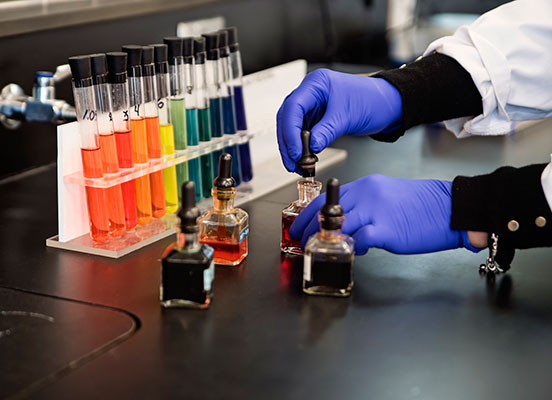
Tesfaye immigrated to America from Ethiopia in late 2019. With both a bachelor’s and master’s degree in biology and more than ten years of experience as a laboratory technician, he felt confident that his employment transition would be seamless. The COVID-19 pandemic exasperated his ability to find a position that aligned with his education and experience. He enrolled in an EARN Maryland biotech bootcamp offered by Montgomery College, which provided lectures and hands-on training. He found the resume assistance and mock interview sessions particularly helpful. Soon after completing training, he was offered a full-time position with a local biotech company.
